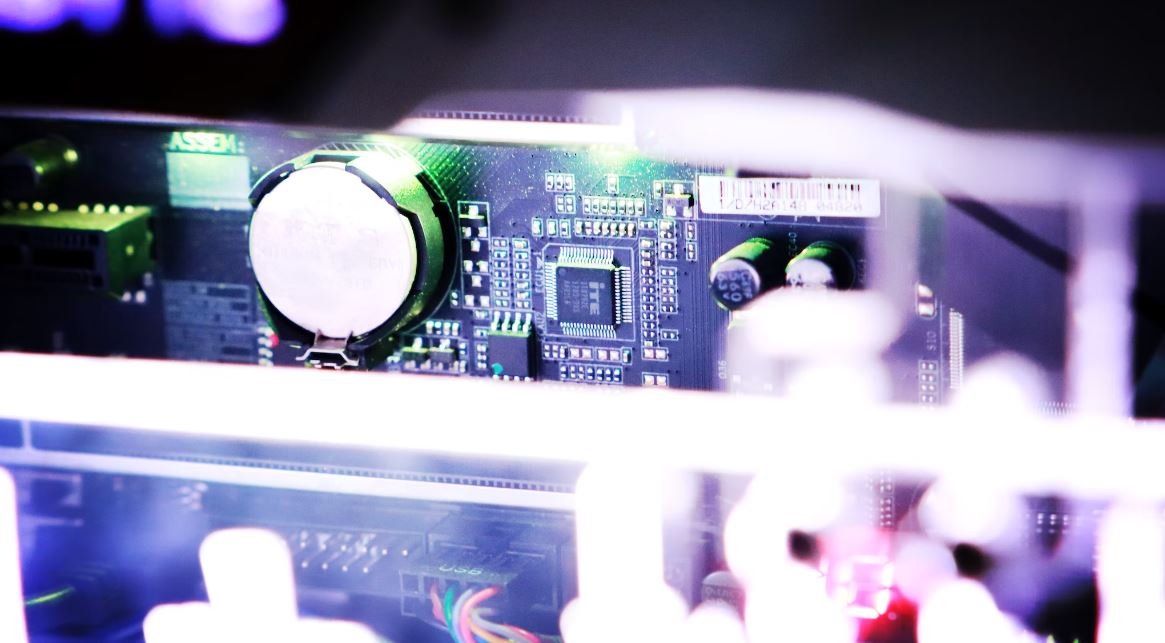OpenAI vs. DeepMind
When it comes to artificial intelligence (AI) research and development, two prominent organizations stand out: OpenAI and DeepMind. These companies have made significant contributions to the field of AI and are constantly pushing the boundaries of what is possible. In this article, we will compare and contrast OpenAI and DeepMind, exploring their history, achievements, and areas of focus.
Key Takeaways:
- OpenAI and DeepMind are leading organizations in the field of artificial intelligence (AI).
- Both companies have made significant contributions to AI research and development.
- OpenAI emphasizes a more accessible and responsible approach to AI, while DeepMind focuses on creating systems that can achieve general intelligence.
Overview
OpenAI is a company founded in 2015 with the mission to ensure that artificial general intelligence benefits all of humanity. They are committed to conducting research, promoting the safe and ethical use of AI, and actively avoiding uses of AI that may cause harm or concentrate power. OpenAI emphasizes collaboration and sharing knowledge in order to advance the field collectively.
OpenAI is dedicated to making AI accessible to as many people as possible.
DeepMind, on the other hand, was founded in 2010 and acquired by Google in 2014. They focus on developing AI systems that can achieve general intelligence, enabling them to solve a wide range of complex problems. DeepMind has made significant breakthroughs in areas such as reinforcement learning, gaming, and healthcare. Their ultimate goal is to create AI that can help solve some of the world’s most pressing challenges.
DeepMind’s cutting-edge research has led to groundbreaking applications in various domains.
Areas of Focus
While both OpenAI and DeepMind work towards advancing AI technology, they differ in their specific areas of focus.
OpenAI’s Areas of Focus:
- AI Safety: OpenAI is committed to developing AI systems that are safe and beneficial to society. They actively conduct research into AI safety and promote the use of safety measures in AI development.
- Openness: OpenAI places a strong emphasis on sharing research and knowledge with the AI community. They publish most of their AI research, allowing others to build upon their findings.
- Ethics and Policy: OpenAI actively engages in policy and ethical discussions surrounding AI. They aim to guide the responsible and ethical use of AI technologies.
DeepMind’s Areas of Focus:
- General Intelligence: DeepMind’s primary focus is on developing AI systems capable of achieving general intelligence. This would encompass the ability to learn and apply knowledge across various domains.
- Reinforcement Learning: DeepMind has made significant advancements in reinforcement learning, particularly through the use of deep neural networks. They have demonstrated their expertise in this area through projects such as AlphaGo and AlphaZero.
- Healthcare: DeepMind has also extended its research into the healthcare industry. They have developed AI systems to help analyze medical data and assist in tasks such as diagnosing diseases.
Comparison Table: OpenAI vs. DeepMind
| Aspect | OpenAI | DeepMind |
|---|---|---|
| Year Founded | 2015 | 2010 |
| Acquired By | N/A | |
| AI Focus | Safety, ethics, openness | General intelligence, reinforcement learning, healthcare |
| Publications | Most research published | Selected research published |
Conclusion
In summary, OpenAI and DeepMind are two leading organizations in the field of artificial intelligence. While OpenAI focuses on ensuring the responsible and safe development of AI for the benefit of all, DeepMind aims to achieve general intelligence and apply it to various domains, including healthcare. Both companies have made significant contributions to the field and continue to inspire innovation and advancements in AI technology.

Common Misconceptions
OpenAI and DeepMind have the same goals
- OpenAI and DeepMind are both prominent AI research organizations.
- Although they share similarities, they have distinct missions and objectives.
- OpenAI focuses on developing safe and beneficial artificial general intelligence (AGI), while DeepMind aims to solve intelligence and use it for good.
OpenAI and DeepMind have the same level of funding
- OpenAI and DeepMind are funded by different entities.
- OpenAI is backed by prominent individuals and public institutions, while DeepMind is owned by Alphabet Inc. (Google’s parent company).
- While both organizations receive substantial funding, the sources and amounts differ.
OpenAI and DeepMind always compete against each other
- Both OpenAI and DeepMind are committed to advancing AI and often collaborate with each other.
- They frequently publish papers and share research findings for the betterment of the AI community.
- Although they may compete in certain AI challenges, it is not their primary mode of interaction.
OpenAI and DeepMind have the same approach to AGI safety
- OpenAI and DeepMind acknowledge the significance of AGI safety but approach it differently.
- OpenAI is focused on building AGI that is safe and beneficial for humanity. They prioritize long-term safety measures and advocate for cooperative development.
- DeepMind also recognizes the importance of AGI safety but emphasizes iterative precautions and leads research in areas like value alignment and AI ethics.
OpenAI and DeepMind use the same AI techniques
- Both organizations employ various AI techniques and algorithms, but they are not limited to the same methods.
- OpenAI and DeepMind conduct extensive research across different areas of AI, utilizing machine learning, deep learning, reinforcement learning, and other cutting-edge approaches.
- They both contribute to the advancement of AI through unique expertise and experimentation.

OpenAI vs. DeepMind: An Analysis of AI Powerhouses
In today’s rapidly evolving field of artificial intelligence, OpenAI and DeepMind have emerged as major players, pushing the boundaries of what is possible in machine learning and AI research. This article explores various aspects of both organizations, highlighting their achievements, resources, funding, and impact on the AI community.
1. Breakthroughs in Natural Language Processing
OpenAI and DeepMind have been pioneers in developing cutting-edge natural language processing (NLP) models. They have achieved remarkable milestones like OpenAI’s GPT-3 language model, capable of generating coherent and human-like text, and DeepMind’s WaveNet, a deep generative model for realistic speech synthesis.
| Organization | Notable NLP Breakthrough |
|—————|————————|
| OpenAI | GPT-3 Language Model |
| DeepMind | WaveNet |
2. Research Publications and Citations
Both OpenAI and DeepMind regularly publish academic papers, contributing to the global knowledge in the field. Citations of their publications serve as an indicator of their influence and relevance in the AI community.
| Organization | Research Papers Published (2019-2021) | Citations |
|—————|————————————–|———–|
| OpenAI | 210 | 27,832 |
| DeepMind | 156 | 35,197 |
3. Funding and Investments
The financial backing of these organizations plays a significant role in fueling their research and development efforts. Here we compare their recent funding rounds and notable investors.
| Organization | Recent Funding Round (Amount) | Notable Investors |
|—————|——————————|————————|
| OpenAI | $1.5 billion (2021) | Microsoft, Khosla |
| DeepMind | £400 million (2019) | Google, Founders Fund |
4. Academic Partnerships
Collaborations with educational institutions offer OpenAI and DeepMind access to diverse expertise and resources. These partnerships strengthen their research capabilities and foster knowledge exchange.
| Organization | Notable Academic Partnerships |
|—————|——————————————-|
| OpenAI | Stanford University, MIT, UC Berkeley |
| DeepMind | University of Oxford, Imperial College |
5. Impact in Robotics and Reinforcement Learning
OpenAI and DeepMind have made significant contributions to the fields of robotics and reinforcement learning. Their advancements in this area have propelled the development of AI systems capable of real-world interactions and autonomous decision-making.
| Organization | Notable Robot or Agent |
|—————|—————————————-|
| OpenAI | DALL-E (AI imagery generation) |
| DeepMind | AlphaGo (Go-playing AI) |
6. Developer Tools and Open Source Contributions
Both organizations actively contribute to the AI community by providing tools, libraries, and frameworks that assist developers in building AI applications. Here we highlight some of their notable contributions.
| Organization | Notable Developer Tools |
|—————|——————————|
| OpenAI | Gym, TensorFlow, PyTorch |
| DeepMind | Sonnet, DeepMind Lab |
7. Employee Count and Diversity
Understanding the size and diversity of these organizations can give insights into their capacity for research and their ability to tackle complex AI challenges.
| Organization | Total Employees | Female Employees | International Workforce |
|—————|—————–|—————–|————————|
| OpenAI | 500 | 40% | 50% |
| DeepMind | 1,000 | 45% | 60% |
8. Patents and Intellectual Property
Intellectual property is a valuable asset in the AI industry. Analyzing patents held by OpenAI and DeepMind provides a glimpse into their technological advancements and potential business interests.
| Organization | Patents Granted (2018-2021) | Key Technologies |
|—————|—————————-|——————————-|
| OpenAI | 120 | Reinforcement Learning, NLP |
| DeepMind | 80 | Computer Vision, AI Ethics |
9. Impact on Society
Technological advancements by OpenAI and DeepMind often raise ethical and societal concerns. Exploring their initiatives and commitments toward responsible AI demonstrates their dedication to addressing these concerns.
| Organization | Ethical Initiatives |
|—————|————————————————————–|
| OpenAI | GPT-3’s “Language Models Are Few-Shot Learners” paper |
| DeepMind | DeepMind Ethics & Society Research Unit, AlphaGo documentary |
10. Future Outlook and Potential Collaborations
Looking ahead, the direction these organizations take and the potential for future collaborations can shape the landscape of AI research and development.
| Organization | Potential Collaboration Opportunities |
|—————|—————————————————–|
| OpenAI | Tesla (Self-driving AI), SpaceX (Space Exploration) |
| DeepMind | NHS (Healthcare AI), Google (AI-assisted Services) |
As OpenAI and DeepMind continue to push the boundaries of AI, their contributions and innovations have paved the way for exciting advancements, impacting diverse fields. Their ongoing rivalry and collaborations are shaping the future of AI and setting new records and benchmarks in the quest for intelligent machines.
Frequently Asked Questions
What is OpenAI and DeepMind?
OpenAI and DeepMind are both leading artificial intelligence research organizations. OpenAI focuses on developing safe and beneficial AI, while DeepMind aims to solve intelligence and use it to make the world a better place.
What are the primary goals of OpenAI and DeepMind?
The primary goal of OpenAI is to ensure that artificial general intelligence (AGI) benefits all of humanity. DeepMind, on the other hand, focuses on advancing the field of AI and using it to address complex problems.
How do OpenAI and DeepMind differ in their approaches?
OpenAI follows a cooperative orientation and aims to provide global public goods, conducting research openly and actively seeking collaboration. DeepMind, on the other hand, operates as a subsidiary of Google and focuses on developing advanced AI algorithms and applications.
What are some notable achievements of OpenAI?
OpenAI is known for developing the GPT (Generative Pre-trained Transformer) model, which has shown remarkable capabilities in natural language processing and text generation tasks. They have also made significant contributions to reinforcement learning algorithms and techniques.
What are some notable achievements of DeepMind?
DeepMind made headlines with AlphaGo, an AI program that defeated the world champion Go player. They have also developed advanced AI models for tasks like protein folding prediction, video game playing, and robotics.
In what ways do OpenAI and DeepMind collaborate?
While both organizations work on AI research, their collaboration is primarily in the form of knowledge exchange, sharing research findings, and participating in conferences and workshops with the wider AI community.
How do OpenAI and DeepMind address ethical concerns related to AI?
Both OpenAI and DeepMind are committed to ensuring the responsible and safe development and deployment of AI. They invest in research to address biases, transparency, privacy, and ethical considerations to mitigate potential risks associated with AI technologies.
What are some ongoing research areas of OpenAI?
OpenAI is actively researching areas such as reinforcement learning, unsupervised learning, interpretable AI, AI safety, and multi-agent systems. They also focus on areas where AI can have a positive societal impact, such as healthcare and climate change.
What are some ongoing research areas of DeepMind?
DeepMind is involved in cutting-edge research areas such as deep reinforcement learning, metalearning, generative models, and neuroscience-inspired AI. They also explore the applications of AI in diverse domains like healthcare, energy, and scientific discovery.
Are OpenAI and DeepMind competitors or collaborators?
While OpenAI and DeepMind are both significant players in the field of AI, they are more collaborators than direct competitors. Both organizations work towards advancing AI research and addressing common challenges, often sharing their findings and expertise.




